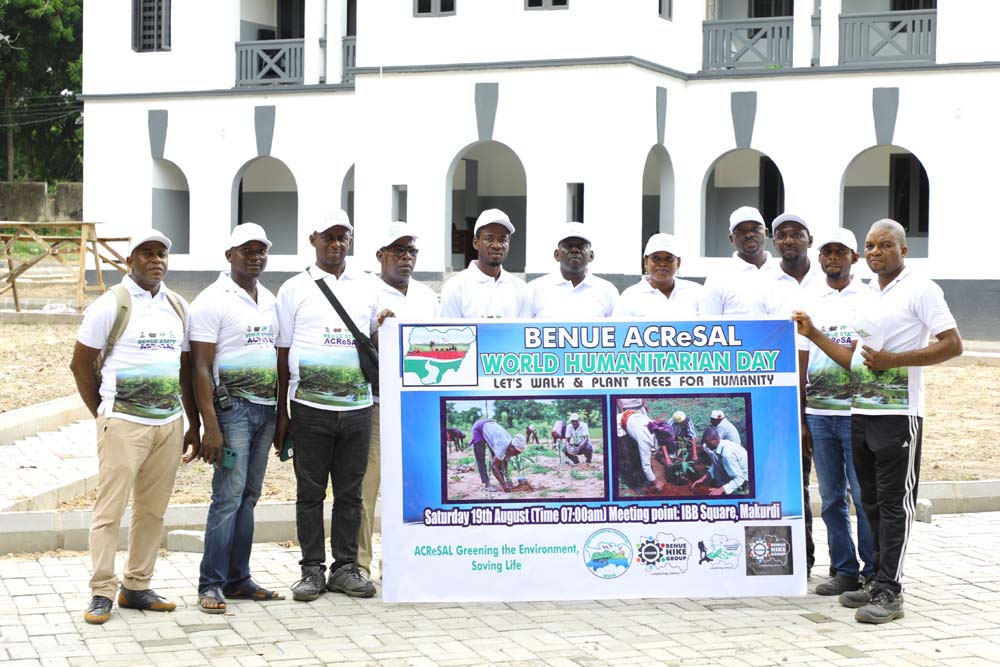BENUE APPROVES N1BN FOR ACRESAL PROJECT, DISBURSES N380M TO BENEFICIARIES
Raymond Enoch
The Benue State Agro-Climatic Resilience in Semi-Arid Landscapes (ACReSAL) has disbursed N380 million community revolving fund loans to 10 selected community interest groups in the state.

This gesture is coming as the state government has approved the use of N1billion as counterpart funding for ACReSAL
State coordinator of ACReSAL, Dr Victor Ama, who stated this in Makurdi during the commissioning of 33 tractors and disbursement of community loan scheme, said the gesture was aimed at revolutionising agricultural practices to boost productivity.
He added that the commissioning of tractors marked a milestone, which is a testament to the commitment to modernising farming methods and enhancing food security.
He said in addition to the tractors, the Community Revolving Fund (CRF) loan is to support small-scale farmers and entrepreneurs.
“This is a pilot scheme starting with Makurdi and Vandeikya watersheds. Five communities each were selected for this pilot scheme from these two watersheds and after series of trainings, especially on Climate Smart Agriculture, a standard screening process led to the selection of fifty Community Interest Groups (CIGs) that are today eligible for receiving these loans.
“These loans will enable our hardworking community members to expand their businesses, create jobs, and contribute to our local economy.”
Governor Hycinth Alia while commissioning the tractors appreciated the relentless efforts of ACReSAL in safeguarding the environment. He said his government is proud to collaborate on a project of such consequence, designed to improve the lives of the people of Benue.
While he pronounced the immediate creation of ACReSAL as a new agency of government in the state for the purpose of knowledge and skills transfer, the governor said Benue like many other states in the country share numerous challenges such as high poverty rates, a fragile environment, conflicts, degradation of natural resources, low agricultural productivity and climate-related risks and addressing such challenges require collective efforts.









